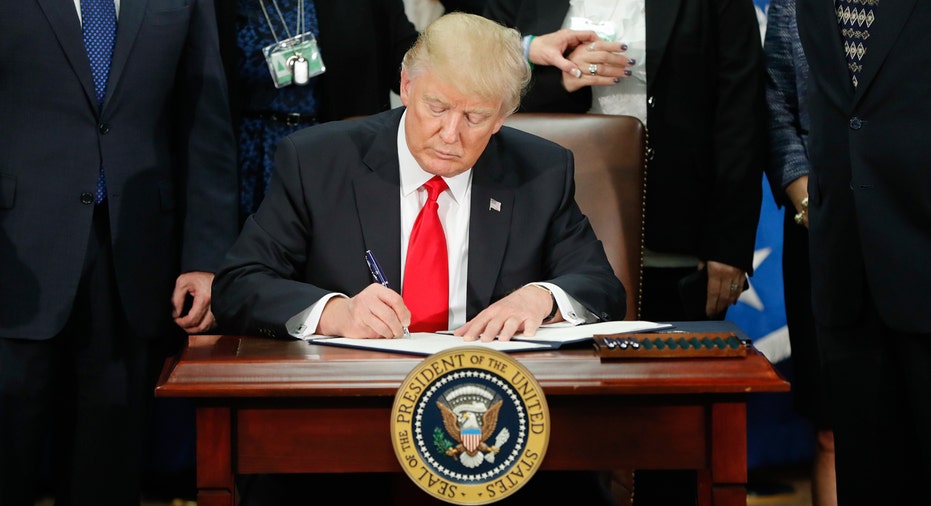Wall St Trips as Trump's Travel Curbs Fuel Uncertainty

The S&P 500 and the Dow were set for their worst day in more than three months on Monday as investors worried over President Donald Trump's orders to restrict travel to the United States.
Trump on Friday signed executive orders to suspend travel to the United States from seven Muslim-majority countries on grounds of national security.
Thousands of people rallied in major U.S. cities and at airports in protest, with Nike and Starbucks among companies that said they did not support the ban.
"The market is reacting negatively right now because of the uncertainty that it creates," said Robert Pavlik, chief market strategist at Boston Private Wealth.
"If it can pull more Republicans off of the President's following and maybe weaken his strength in Congress, then you start to wonder about the other initiatives that may not get passed."
U.S. equities hit a series of record highs following Trump's election in November, encouraged by his promise of tax cuts and simpler regulations.
However, the potential risk from Trump's protectionist policies and the lack of clarity since he took office have dampened some of the enthusiasm.
The Dow, which soared 9.2 percent in the aftermath of Trump's election, has gained only 1 percent after his Jan. 20 inauguration.
The CBOE Volatility index or Wall Street's "fear gauge" ticked up 1.75 points, its largest since early November.
Investors are also keenly watching the Federal Reserve's policy meeting that begins Tuesday, corporate earnings from key companies such as Apple and Facebook and a raft of economic data including Friday's crucial jobs report.
Trump also signed an executive order that would seek to pare back federal regulations by requiring agencies to cut two existing regulations for every new rule introduced.
At 12:30 p.m. ET (1730 GMT), the Dow Jones Industrial Average was down 165.37 points, or 0.82 percent, at 19,928.41.
The S&P 500 was down 20.56 points, or 0.89 percent, at 2,274.13 and the Nasdaq Composite was down 59.94 points, or 1.06 percent, at 5,600.84.
All 11 major S&P sectors were down, five of which, including financials and technology, declined more than 1 percent.
Microsoft and Alphabet were the top drags on the S&P and the Nasdaq, while Goldman Sachs' 1.5 percent drop weighed the most on the Dow.
Airline stocks, including American Airlines, United Continental and JetBlue, were down between 2.5 percent and 5.5 percent.
Declining issues outnumbered advancers on the NYSE by 2,263 to 620. On the Nasdaq, 2,273 issues fell and 538 advanced.
The S&P 500 index showed three new 52-week highs and five new lows, while the Nasdaq recorded 35 new highs and 34 new lows.
(Reporting by Yashaswini Swamynathan in Bengaluru; Editing by Sriraj Kalluvila)



















